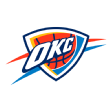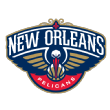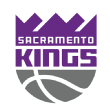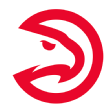The NBA coaching carousel is becoming a bumpy ride.
Over the past three weeks, three NBA head coaches have been replaced by options from within.
In Brooklyn, Lionel Hollins was replaced by Tony Brown. In Cleveland, David Blatt was replaced by Tyronn Lue. And in Phoenix, Jeff Hornacek was replaced by Earl Watson. Lest we forget, Kevin McHale was let go just 11 games into the season, replaced by J.B. Bickerstaff.
Of the four, only Lue seems to be currently operating free of the dreaded "interim" tag. Of the four, I harbor the most hope for Lue.
Not to lead the Cavaliers to Cleveland's first championship in over 50 years -- I don't care about reality. I just want Lue to increase Kevin Love and Kyrie Irving's fantasy value. (By the way, some extra production from Mo Williams wouldn't hurt.)
It's a good bet to happen. Why? Because the historical indicators point toward Lue registering some statistical impact.
In-season coaching changes can create a new dynamic for their team that can alter fantasy fortunes. But historically, these shifts can only occur when a team is underperforming versus their anticipated production.
The other defining factor? Dilution.
How many players are getting the 25 or so minutes a night required to make a positive fantasy impact?
It's great to have an efficient, high-paced offense that scores a lot of points. But if said team is playing with a long rotation (eight to 10 players), the production doesn't mean as much.
Take a look at the Celtics. On the whole, Brad Stevens' system powers the Celtics to better-than-average fantasy production. In the aggregate, Boston is a top-10 fantasy team.
But once you factor in that the Celtics currently have eight players averaging over 20 minutes a night? And (not coincidentally) eight players contributing in a net positive in fantasy?
That aggregate value gets diluted. And the Celtics become a middle-of-the-road fantasy team.
Brad Stevens is a great NBA coach. But in fantasy ... he's just OK.
A coaching change doesn't mean much in fantasy if the new coach doesn't do three things:
1. Increase offensive efficiency
2. Increase pace
3. Shorten the rotation
Those are the three factors that power superlative fantasy coaching. They're the same things we look for in an NBA player.
A 20.0 PER doesn't mean as much if he's part of a nine-man rotation on a team averaging 93 possessions a game.
On the other hand, a player on a team averaging 98 possessions is hurt if his team is inefficient and doesn't have a well-defined lineup (think the Sixers or Suns).
Lue is in a good position to increase his stars' fantasy value, because in a way, that's what he's been hired to do. It didn't matter that Blatt had the Cavaliers leading the Eastern Conference. Irving and Love have underperformed offensively. As a team, the Cavaliers weren't playing the 3-pointer heavy brand of basketball seemingly required to keep up with Golden State.
In terms of wins and losses, Blatt was a good NBA coach. But he was a bad fantasy coach, and in this case it got him fired.
When a coach is brought in to increase scoring and efficiency -- while shifting more production toward his high-upside players? That's fertile ground for a fantasy upswing. The table is set for Lue to quickly become a top-10 fantasy coach.
While in-season shifts tend to work better for Cleveland-type situations, it can work for bottom feeders too. But only if the bottom feeder has a good amount of young upside that receives a boost in minutes.
Playing a lot of young upside is nice. But in fantasy, it doesn't mean as much if you're playing a deep rotation. Go too deep, and you become Hornacek's Suns.
But if a coach shifts playing time toward his young upside, a mediocre real-life NBA team can become a good fantasy team. That's good fantasy coaching.
Take Sam Mitchell's Minnesota Timberwolves.
Minnesota has shifted the burden of production heavily in favor of their young upside. Andrew Wiggins, Ricky Rubio and Karl-Anthony Towns are all benefiting from expanded roles, in fantasy and in reality. As the season progresses, I'm hoping Gorgui Dieng and Zach LaVine's minutes increase at the expense of Kevin Martin, Kevin Garnett and other veterans.
The Timberwolves are 14-35. But thanks to the lack of dilution, they are a top-10 fantasy team. And with their upside, the Wolves are sitting on top-five potential.
Let's take a quick trip through my top five fantasy coaches.

1. Billy Donovan, Oklahoma City Thunder
Fine. The table was set. It helps when you walk in your first day on the job and are greeted by Russell Westbrook, Kevin Durant and Serge Ibaka. And it helps that all three are healthy.
But results are results, and Donovan has done a fine job maintaining efficiency and increasing pace ... while keeping his rotation short. Durant, Westbrook and Ibaka are all well over 30 minutes a night.
OKC is No. 2 in offensive rating and 10th in pace. The Thunder have a shallow bench, sky-high offensive efficiency and better-than-average pace.
It's only Donovan's first year. But his analytics-friendly approach has translated well.

2. Steve Kerr, Golden State Warriors
The Warriors are producing fantasy value at a record rate. As a team, the Golden State is posting the highest single-season aggregate player rating in (my) memory. They're the most efficient offensive team in basketball. They're second in pace.
But all that eye-dropping value, as boffo as it is ... gets a little diluted thanks to Kerr's deep rotation. Fantasy doesn't reward egalitarianism. It rewards concentrations of volume. The Warriors' fantasy portfolio is ever-so-slightly dented by its (necessary) timeshare at center and by its amalgamation of swingmen not named Klay Thompson.

3. Alvin Gentry, New Orleans Pelicans
Attach any metaphor you want ... Gentry is embattled. The Pelicans stumbled out of the gate. They were statistically unleavened.
The Pelicans have been hurt. Jrue Holiday only recently returned to a modicum of full-time duty. Eric Gordon, at best, remains only semi-ambulatory. Tyreke Evans is as brittle as they come. Anthony Davis is working to overcome an injury-prone rep.
The Pelicans have one of the most uninspiring small forward combinations (Alonzo Gee/Dante Cunningham) in recent memory.
The Pelicans, despite the presence of shot-alerting gyroscope Davis, are one of the worst defensive teams in basketball.
And yet ... Gentry is a great fantasy coach. When running as constructed, his system produces gobs upon gobs of player rater points.
The Pelicans are a losing team, but they are still providing fantasy owners with decent numbers. Because the Pelicans basically are a fantasy team.
Think about it. Davis plus Jrue Holiday plus Ryan Anderson plus Tyreke Evans ... plus an occasionally healthy Eric Gordon. Four-to-five great variables to plug into a fantasy equation. Oh, and the Pelicans have no depth.
That's an inside-outside combination that should provide sustained across-the-board fantasy goodness.

4. George Karl, Sacramento Kings
I should drop Karl an extra spot up the charts just for working for the Kings. It's as dysfunctional of an environment as an NBA coach can have.
The Kings have upside. Karl's job is to help the Kings find more consistency. Unfortunately, it only arrives in fits and starts. But as manic as the Kings have been, they have been productive in fantasy.
DeMarcus Cousins, Rajon Rondo and Rudy Gay are one of the better triptychs on the player rater. Omri Casspi and Darren Collison have been better than average. And Willie Cauley-Stein seems poised to start making a consistent fantasy impact.
Tough spot, but top shelf fantasy coaching.

5. Mike Budenholzer, Atlanta Hawks
So the Hawks aren't operating at last year's high rate of offensive efficiency. I love Budenholzer's teams because they're balanced in their fantasy production but avoid dilution.
Last season, the Hawks had perhaps the best three-headed monster in fantasy in Paul Millsap, Al Horford and Jeff Teague. All three players finished the season with at least 10 player rater points. Kyle Korver, DeMarre Carroll and Dennis Schroder also made positive fantasy contributions.
This season's cast underwent some negative alterations. Any time you swap out DeMarre Carroll and Kyle Korver for more Thabo Sefolosha and Kent Bazemore? In fantasy and reality ... that's going to sting a bit.
The rest of the top 10
6. Doc Rivers, Los Angeles Clippers 7. Sam Mitchell, Minnesota Timberwolves 8. Randy Wittman, Washington Wizards 9. Eric Spoelstra, Miami Heat 10. J.B. Bickerstaff, Houston Rockets
